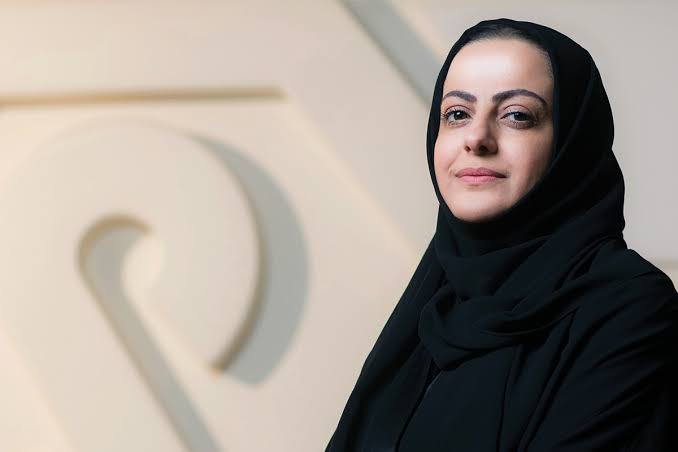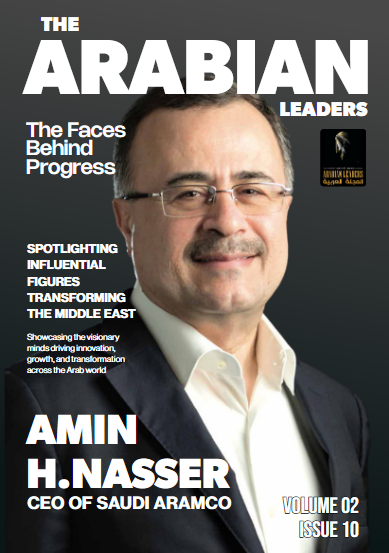In the ever-evolving narrative of Saudi Arabia’s rise to global prominence, certain figures stand not merely as participants but as defining forces. Rania Nashar is one of those rare individuals whose influence has been as transformative as it has been symbolic. She is not just a name in a boardroom—she is a force in a boardroom, a voice that has resonated far beyond the confines of corporate corridors and financial charts.
Rania Nashar’s emergence as a leading figure in Saudi business marked not just a personal ascent but a cultural revolution. When she became the first woman to serve as CEO of a commercial bank in Saudi Arabia—Samba Financial Group—she did more than just accept an executive role. She redefined what was possible for women in the Kingdom.
To understand her impact is to understand the cultural context she rose within. Saudi Arabia’s economic and social structures have long been male-dominated, especially in finance. Yet Nashar’s ascent was not a quiet anomaly—it was a landmark. Her success became a touchstone for the Vision 2030 reforms that seek to reimagine Saudi society in a more inclusive and diversified light.
A FOUNDATION IN EXCELLENCE
Rania Nashar’s academic and professional roots reflect the depth of her preparation and the clarity of her ambition. A graduate of King Saud University with a degree in Computer Science and an Executive Diploma from Harvard Business School, Nashar entered the financial sector with a foundation both technical and strategic.
Her journey with Samba Financial Group began in 1997, a time when few Saudi women occupied roles of authority within banking institutions. Yet, through a combination of intellectual rigor, policy fluency, and relentless work ethic, Nashar navigated complex systems, climbed intricate hierarchies, and consistently delivered exceptional results. Her early roles across audit, compliance, risk management, and retail banking gave her an integrated view of the institution, preparing her not just to lead it—but to transform it.
In 2017, she was appointed CEO of Samba. With that, she didn’t just take a seat at the table—she built a new table. Her leadership sent a powerful message: competence transcends gender, and in Saudi Arabia, the future would be defined by inclusion and performance.
A PIONEER IN THE MALE-DOMINATED FINANCE SECTOR
To become the first female CEO of a commercial bank in the Kingdom was no small feat. But Rania Nashar didn’t rest on symbolic victories. She brought structural change. Her tenure at Samba was marked by strategic expansion, improved digital infrastructure, and strong risk management frameworks. She modernized internal systems, championed financial innovation, and drove significant improvements in client services.
More importantly, Nashar implemented changes that paved the way for the elevation of more women into meaningful roles across departments. Her leadership made clear that inclusivity is not a favor—it is a strategic asset. Under her guidance, Samba began to reflect a new generation of Saudi ambition, one where talent was allowed to rise, regardless of traditional constraints.
Her style of leadership is not characterized by bombast, but by precision. Colleagues often describe her as calm, analytical, and highly deliberate. She speaks less but delivers more. And perhaps that is her greatest strength—her ability to change paradigms not by speeches but by outcomes.
ALIGNMENT WITH VISION 2030
The story of Rania Nashar is in many ways intertwined with the broader national transformation. As Saudi Arabia embarks on its Vision 2030 strategy—a blueprint to reduce its dependency on oil, diversify the economy, and empower citizens—Nashar’s career becomes emblematic of what that vision seeks to accomplish.
She represents the new Saudi woman: confident, educated, empowered, and central to the national story. As Vision 2030 calls for increased female participation in the workforce, enhanced governance, and technological advancement, Nashar has already been there—delivering precisely that in the banking sector long before policy caught up.
This synergy between personal excellence and national agenda is what makes her unique. She is not simply benefiting from reform. She has helped make reform a reality.
BEYOND SAMBA: NEW HORIZONS
In 2021, Nashar stepped down as CEO of Samba following its historic merger with the National Commercial Bank (NCB), creating the Saudi National Bank (SNB)—one of the largest financial institutions in the region. Rather than fading into the background, she pivoted to an even broader stage.
She was appointed Senior Advisor to the Governor of the Public Investment Fund (PIF), Saudi Arabia’s sovereign wealth fund. The move was not merely lateral—it was strategic. PIF lies at the center of Saudi Arabia’s diversification efforts, investing in sectors ranging from sports and tourism to AI and green energy. Nashar’s presence at the PIF elevated her role from financial services to national policy.
At the PIF, she contributes to shaping long-term economic strategy, advising on governance, risk management, and organizational excellence. It is a role that places her at the nerve center of Saudi Arabia’s future—a place she is deeply familiar with.
A GLOBAL PRESENCE
Rania Nashar’s influence is not confined to the Kingdom. She has served on numerous international and regional committees, representing Saudi Arabia with poise and authority. From regulatory councils to high-level dialogues, Nashar is known for her ability to synthesize complex information and advocate effectively for reform and innovation.
She has been listed among Forbes Middle East’s Top Businesswomen, named one of the Most Powerful Women in Banking by Global Finance, and has received numerous accolades for her impact. These recognitions are not just symbolic. They are evidence that Saudi leadership now speaks with a female voice on the global stage—and it is articulate, strategic, and unstoppable.
MENTORSHIP AND ADVOCACY
Perhaps one of Nashar’s most important contributions is the way she continues to mentor and inspire the next generation of Saudi women. She is a living proof that glass ceilings are not immovable—they are meant to be shattered.
Through public speeches, mentorship initiatives, and quiet encouragement behind the scenes, she champions not just women in banking—but women in science, law, politics, and entrepreneurship. Her presence signals possibility. Her work makes it sustainable.
A STRATEGIST OF THE HIGHEST ORDER
Behind every policy shift and headline lies a strategist—and Nashar is one of the finest. Whether she is advising the PIF on portfolio diversification or streamlining internal frameworks at a banking institution, her approach is systemic. She does not see change in isolation. She sees cause, effect, and interconnection.
Her decisions are calculated, her leadership is grounded in data, and her plans are always future-facing. In a world that increasingly values agility and vision, Nashar offers both.
THE SYMBOL OF A NEW ERA
Rania Nashar’s career reflects a deeper truth about modern Saudi Arabia: change is no longer theoretical. It is lived, implemented, and led. As women take on more prominent roles in every sector, Nashar remains a guiding light—a reference point of what is achievable when ambition meets opportunity.
Her rise has broken old molds. But more importantly, it has created new ones for others to follow.
CONCLUSION: THE ARCHITECT OF POSSIBILITY
Rania Nashar is not simply a successful executive. She is an architect of possibility. In the face of historic limitations, she chose innovation. In the presence of skepticism, she offered results. And in a nation poised for transformation, she has become a trusted voice and a vital hand.
She reminds us that true leadership is not about title—but impact. Not about attention—but influence. And in Saudi Arabia’s ongoing story of growth, equity, and excellence, Rania Nashar’s chapter will remain among the most compelling.








